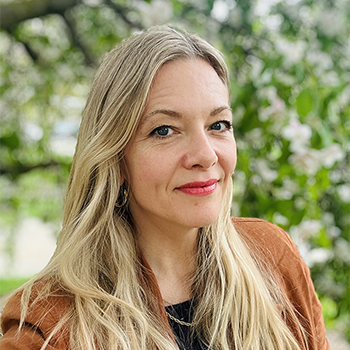Amplifying the voices of the Mekong River Basin
January 12, 2024 - Emily Springer
The following story originally appeared in The Engaged Scholar eNewsletter: Engage.
The Mekong River has long been referred to as a “biological treasure.” The river winds through six countries in Southeast Asia—China, Myanmar, Laos, Thailand, Cambodia, and Vietnam—providing an abundance of resources, including fresh water, food, and transportation, for the nearly 60 million people who live along its 2,700-mile-long bank. The biodiversity of the river is said to rival that of the Amazon, with thousands of species of plants, fish, birds, mammals, and more calling the Mekong “home.”
In recent years, the river has begun to experience the detrimental effects of industrializing agriculture, water grabbing (unequal distribution of water), and perhaps the most pressing, rapid hydropower development in the form of dams.
The construction of dams has displaced many families and even entire communities, interrupting the traditional lives and livelihoods of people living along the Mekong.
Amanda Flaim, assistant professor in the Department of Sociology, College of Social Science, and Comparative Cultures and Politics in James Madison College, has worked alongside and in support of Indigenous citizenship and land justice movements in the Mekong region for 20 years. She is currently leading a dynamic, interdisciplinary team of scholars and students at MSU in collaboration with community partners, artists, and experts across the Lower Mekong River Basin to keep the river and its ecological and cultural importance at the forefront of conversations.

Amanda Flaim is an assistant professor in James Madison College.
“The Mekong River is significant in nearly every way imaginable, and its vitality should be of central concern to anyone interested in ecology, sustainability, international energy and climate policy, food justice, and cultural diversity,” Flaim said. “We aim to work collectively and inclusively to provide education and outreach opportunities while also amplifying the voices, stories, and knowledge of communities who are losing the most amidst this rapid domestication of the river. Our students here in Michigan have so much to learn from communities in the Mekong region. Freshwater justice, land grabbing [similar to water grabbing], and displacement remain critical concerns here on Turtle Island [North America] as well,” she said.
Flaim notes one major threat has been seen in the severe reduction of fish stocks. Fish and silt cannot move through the dams, undermining food security in the region and causing major hindrances to fisher people’s livelihoods and dramatically threatening cultural diversity that emerges through place-based practices. Beyond that, entire communities have been displaced due to the building of dams, and worse, the failure of dams.
Laos experienced these deadly effects in July of 2018 when the dam known as “Saddle Dam D” in the Mekong Basin collapsed, releasing billions of cubic meters of water that submerged entire villages, destroying homes, farms, forests, and essential resources. More than 70 people lost their lives, hundreds went missing, and thousands more were left homeless.
Dam construction is disrupting spiritual ceremonies and rites as well. “Our community partners across the region are deeply concerned about the cultural displacements that are happening,” Flaim said. “For example, when sacred fishing grounds are flooded by dams, communities cannot commune, fish, share their catch, and worship there. Additionally, when flooded forests die due to higher rates of drought from climate change caused in part by the dams, traditional ceremonies that have taken place there for generations now cannot.”
The full story is available in Engaged.

